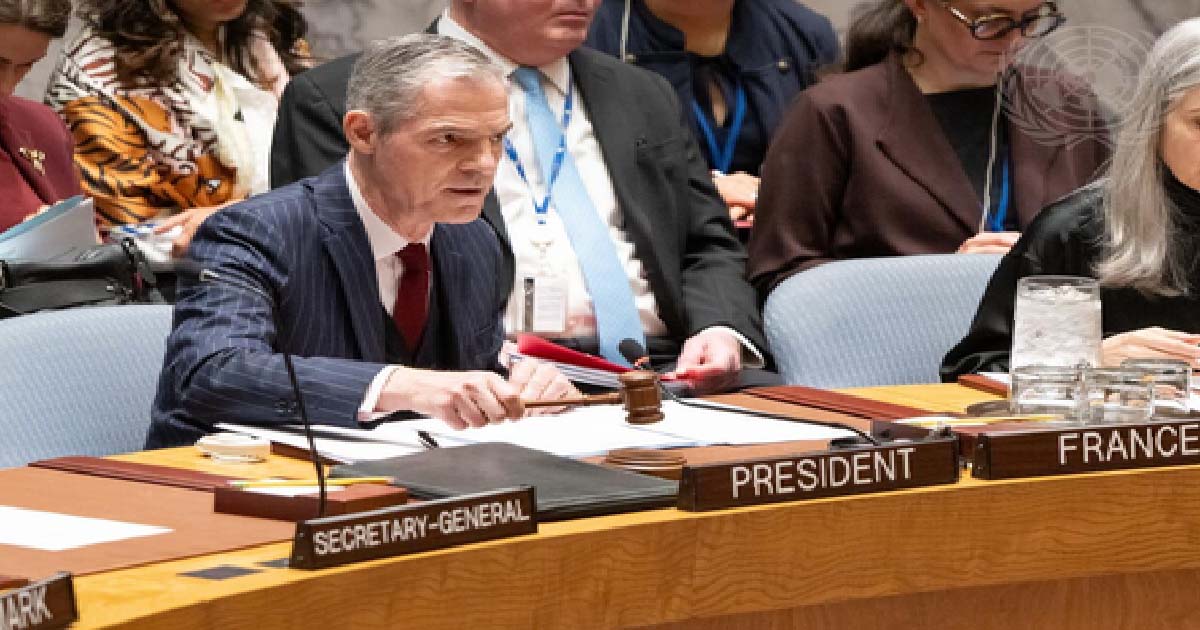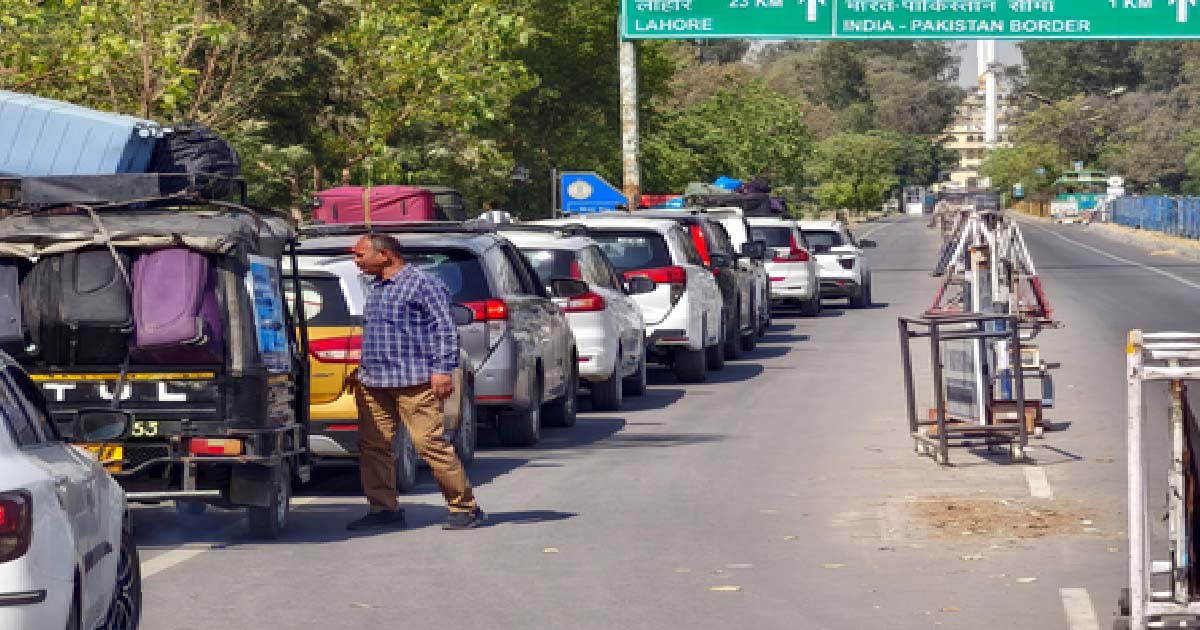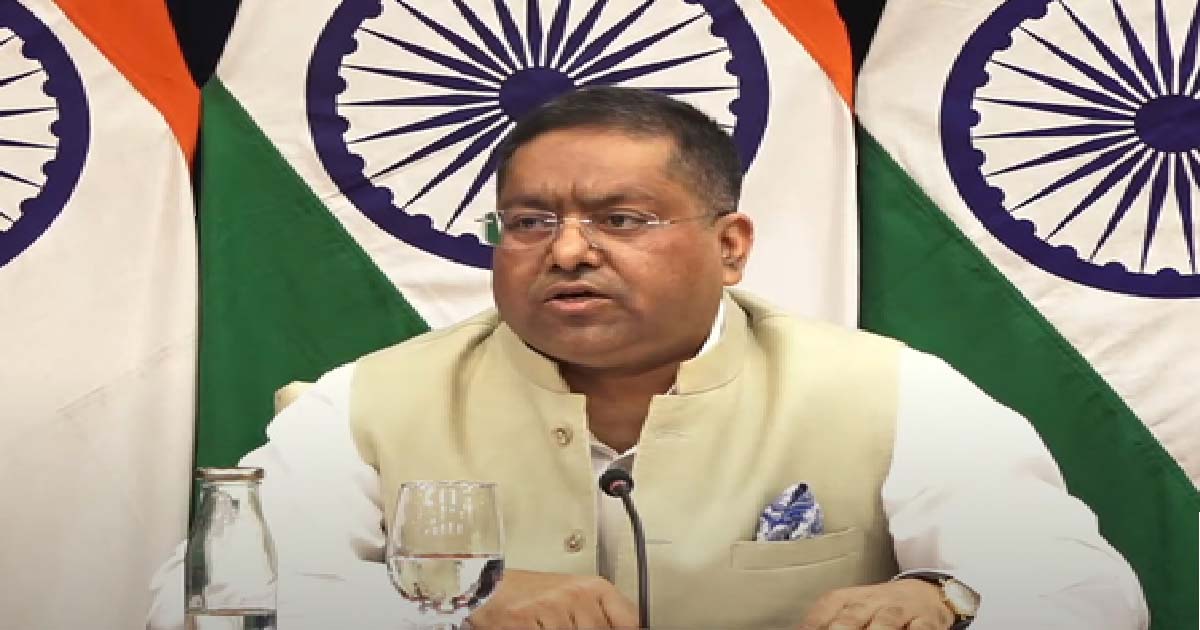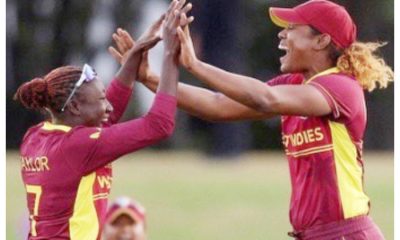International
With tricky Sharjah wicket to negotiate, New Zealand to take Namibia seriously

New Zealand spinner Mitchell Santner conceded Namibia would be “dangerous” on a tricky Sharjah wicket during their clash later on Friday, following their gritty display in a losing cause against Pakistan and a four-wicket win against Scotland in their opening ‘Super 12’ game at the ICC T20 World Cup here.
Despite being the underdogs, Namibia have had fruitful outings at the T20 World Cup and the Black Caps wouldn’t want to take any risks with the side by underestimating their potential, given that the Kane Williamson-led side has one foot in the semifinals.
“They are (dangerous} for sure. Especially in T20 cricket. There’s an upset just around the corner. We’ve got to be ready… We’ve seen the wicket at Sharjah can be tricky, and it brings both teams back into it, said Santner ahead of the afternoon game on Friday.
“Namibia have played some good cricket. And so we’ve just got to be ready for that, ready for what the pitch is going to bring, (and ready for) a day game is obviously something new again in Sharjah.”
After two wins in three games, New Zealand are third on the ‘Super 12’ Group 2 table. If they win their final two matches, they will jump ahead of Afghanistan to claim the second position, which will confirm a spot in the semifinals. Pakistan have already secured a last-4 berth with four-of-four wins in ‘Super 12’.
The first of those two must-win matches is against Namibia in Sharjah. Scotland gave New Zealand a good fight in their previous game, so the Black Caps will be wary of underestimating the threat posed by the Associate Nation.
New Zealand have been clinical in their performances so far, keeping it simple and doing well to win the crunch moments against India and Scotland. Against Pakistan, they were in the game for long periods of time until Asif Ali’s late six-hitting took the game away.
Their biggest challenge is the quick turnaround and the change in conditions to Sharjah. “It’s pretty full on. All day games as well. So it takes a lot of out of you,” said Santner, New Zealand’s left-arm spinner, adding that the team was focused on rest and recovery when they could.
“The biggest adjustment (we need to make) – obviously there’s a bit of difference playing in Sharjah versus outside the other two grounds. In New Zealand you’re looking for a bit of bounce, trying to bowl hard length into the wicket, get a bit of bounce, and you don’t really get that at Sharjah, where it actually sits up,” he told icc-cricket.com.
“The guys that have done well at Sharjah are the guys that are skiddier out in the front and keeping it low. That’s probably the biggest adjustment for me and Ish [Sodhi] where in the past you look for that over-spin and bounce, it’s a little less effective in Sharjah.”
Namibia, too, mathematically still have a chance to qualify for the semifinal, but they will be taking one match at a time, keen to first put in performances that ensure they are constantly competing with the higher-ranked sides.
New Zealand have worked like a swell-oiled machine, with several players doing their bit in defined roles. Martin Guptill’s 93 against Scotland was perhaps the first big example of individual brilliance from them.
Namibia could bring back Bernard Scholtz, the left-arm spinner, especially if the Sharjah surface has something for spin. They have tweaked their opening combination for a few games, but might stick to the Stephan Baard-Michael van Lingen one for another game. There are injury concerns over their captain Gerhard Erasmus, who has been managing a long-standing finger injury with injections.
“We know New Zealand are a tough opposition. They’ve got world-class players there. And we’re again being seen as the underdogs in the game, but we’ve played the games at Sharjah before, we’ve had a bit of success at Sharjah, and we think it’s a wicket that could suit our type of bowling. So we’ve done our prep,” said Namibia all-rounder David Wiese.
Probable XI: Martin Guptill, Daryl Mitchell, Kane Williamson (capt), Devon Conway (wk), Glenn Phillips, Jimmy Neesham, Mitchell Santner, Adam Milne, Tim Southee, Trent Boult, Ish Sodhi.
Probable XI: Stephan Baard, Michael van Lingen, Craig Williams, Gerhard Erasmus (capt), David Wiese, JJ Smit, Nicol Loftie-Eaton, Zane Green (wk), Jan Frylinck, Ruben Trumpelmann, Bernard Scholtz.
International
UNSC asks all countries to cooperate in bringing Pahalgam terrorists, backers to justice

United Nations, April 26: The Security Council has “condemned in the strongest terms” the Pahalgam terrorist attack and urged all countries to cooperate in bringing all those involved in the massacre, to justice.
The members of the Security Council “stressed that those responsible for these killings should be held accountable, and urged all States, in accordance with their obligations under international law and relevant Security Council resolutions, to cooperate actively with all relevant authorities in this regard”, Council President Jerome Bonnafont said in a Press statement on Friday.
A front organisation of the Pakistan-based terrorist group Laskhar-e-Tayiba has owned responsibility for the attack.
The statement issued by France’s Permanent Representative Bonnafont who is the Council president for this month, took a broad view of those involved in the massacre by including the financiers and sponsors.
“The members of the Security Council underlined the need to hold perpetrators, organisers, financiers and sponsors of this reprehensible act of terrorism accountable and bring them to justice”, the statement said.
Pakistan, which is on the Council as an elected member, went along with the other members in endorsing the statement, committing itself – at least on paper – to bringing those involved to justice.
A Press statement expresses the consensus of the Council and carries moral authority, while not being legally binding like a resolution.
The statement also shot down the attempts by some in Pakistan to give terrorist attacks a veneer of justification.
“The members of the Security Council reiterated that any acts of terrorism are criminal and unjustifiable, regardless of their motivation, wherever, whenever and by whomsoever committed”, it said.
The Council members “reaffirmed the need for all States to combat by all means, in accordance with the Charter of the United Nations and other obligations under international law, including international human rights law, international refugee law and international humanitarian law, threats to international peace and security caused by terrorist acts”, the statement added.
Earlier, the spokesperson for Secretary-General Antonio Guterres hinted that a diplomatic effort by him may be afoot.
Asked by a reporter, if Guterres would speak to leaders of India and Pakistan, Spokesperson Stephane Dujarric said that he hoped to have something to share on that later.
Reiterating the condemnation of the terrorist attacks, Dujarric said, “We again urge both the Government of India and the Government of Pakistan to exercise maximum restraint to ensure the situation does not deteriorate further.”
When a reporter asserted that the possibility that “two nuclear countries” might “go to war” was getting insufficient attention, Dujarric said, “I don’t agree with your comment. We are paying very close attention to the situation between India and Pakistan.”
International
Wagah-Attari border closure leaves several families in limbo

Islamabad, April 25: Pakistan and India’s decision to shut down the Wagah-Attari border crossing after the deadly Pahalgam terror attack has forced several citizens from both countries to cut short their visit and rush back home.
On Thursday, after both countries announced closure of border crossing and gave a deadline for citizens to leave for their respective countries, at least 28 Pakistanis nationals returned from India while 105 Indian citizens in Pakistan crossed over into India.
A Hindu family from Balochistan’s Sibi was reportedly denied entry into India after the closure of border crossing.
“We were on our way to Indore in Madhya Pradesh to attend a wedding. Seven members of our family were excited to join our relatives in India and take part in the celebrations. But upon reaching Wagah, we learned that the border had been sealed. We will spend the night at Dera Sahib in Lahore and head back home tomorrow,” said Akshay Kumar.
Meanwhile, a Sikh family from India, in Pakistan to attend a wedding, decided to leave for India immediately.
“We had come to Pakistan for a wedding. While the ceremony took place, several important rituals remained. Once we heard the border was closed, we decided to return immediately,” said Raminder Singh, an Indian national.
A Hindu family from Ghotki in Pakistan’s Sindh province, now residing in New Delhi, was visiting Pakistan for the last two months to meet their relatives. However, they are now unsure about getting permission to return to India.
“There are five of us, including my young son and daughter, uncle and aunt. We all hold Pakistani passports and were granted No Obligation to Return to India (NORI) certificate by India. But uncertainty looms now, said a family member named Indira.
“Families with cross-border ties often bear the brunt of rising tensions between the two neighbours. With tensions between Pakistan and India once again on the rise, human connections across borders are becoming the first casualty,” said Asif Memood, a Lahore-based journalist.
“The closure of the Wagah-Attari border has left many families in limbo, uncertain when they will next reunite with their loved ones,” he added.
International
Murder of Hindu leader: India slams Bangladesh, says killing follows pattern of systematic persecution of Hindu minorities

New Delhi, April 19: India on Saturday issued a sharp condemnation of the abduction and brutal killing of Bhabesh Chandra Roy, a prominent Hindu community leader in northern Bangladesh, calling it part of a “pattern of systematic persecution” of minorities under the country’s interim government.
Ministry of External Affairs (MEA) spokesperson Randhir Jaiswal voiced India’s grave concern, stating that the incident reflects an alarming trend of targetted violence against Hindus and other minority groups in Bangladesh.
“We have noted with distress the abduction and brutal killing of Shri Bhabesh Chandra Roy, a Hindu minority leader in Bangladesh. This killing follows a pattern of systematic persecution of Hindu minorities under the interim government, even as the perpetrators of previous such events roam with impunity,” Jaiswal said in a post on social media platform X.
He added, “We condemn this incident and once again remind the interim government to live up to its responsibility of protecting all minorities, including Hindus, without inventing excuses or making distinctions.”
India has previously expressed similar concerns over rising attacks on minorities in Bangladesh, but this latest incident has drawn particular attention due to Roy’s prominence in the Hindu community.
Roy, who served as the Vice-President of the Biral unit of the Bangladesh Puja Udjapan Parishad, was abducted from his residence in Dinajpur district on Thursday evening. According to police and family accounts, he received a phone call around 4:30 p.m., after which four unidentified men arrived on motorcycles and forcibly took him to Narabari village. He was reportedly assaulted and later found unconscious. He was rushed to a hospital in Dinajpur, where he was declared dead on arrival. His wife, Shantana Roy believes the attackers used the call to confirm his location before carrying out the abduction.
Opposition leaders in India also slammed the shocking incident in the neighbouring country.
Congress President Mallikarjun Kharge highlighted that religious minorities, especially Hindus, are being persecuted in Bangladesh.
“Attacks on other religious minorities are also continuing. Recently, the Chief Advisor of Bangladesh made a very condemnable and disappointing comment about the northeastern states of India. The persecution of religious minorities in Bangladesh, human rights violations, and the attempt to erase the memories of the 1971 Liberation War are efforts to weaken the relationship between India and Bangladesh. From 1971 till today, India has always wished for peace and prosperity for all the people of Bangladesh. This is in the best interest of the subcontinent,” he said.
-

 Crime3 years ago
Crime3 years agoClass 10 student jumps to death in Jaipur
-

 Maharashtra1 year ago
Maharashtra1 year agoMumbai Local Train Update: Central Railway’s New Timetable Comes Into Effect; Check Full List Of Revised Timings & Stations
-

 Maharashtra1 year ago
Maharashtra1 year agoMumbai To Go Toll-Free Tonight! Maharashtra Govt Announces Complete Toll Waiver For Light Motor Vehicles At All 5 Entry Points Of City
-

 Maharashtra1 year ago
Maharashtra1 year agoFalse photo of Imtiaz Jaleel’s rally, exposing the fooling conspiracy
-

 National News1 year ago
National News1 year agoMinistry of Railways rolls out Special Drive 4.0 with focus on digitisation, cleanliness, inclusiveness and grievance redressal
-

 Maharashtra1 year ago
Maharashtra1 year agoMaharashtra Elections 2024: Mumbai Metro & BEST Services Extended Till Midnight On Voting Day
-

 National News1 year ago
National News1 year agoJ&K: 4 Jawans Killed, 28 Injured After Bus Carrying BSF Personnel For Poll Duty Falls Into Gorge In Budgam; Terrifying Visuals Surface
-

 Crime1 year ago
Crime1 year agoBaba Siddique Murder: Mumbai Police Unable To Get Lawrence Bishnoi Custody Due To Home Ministry Order, Says Report






















